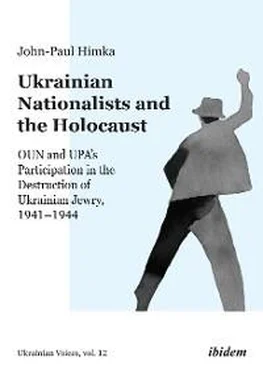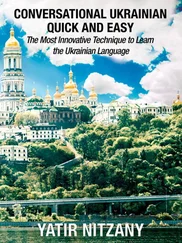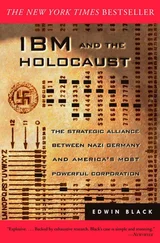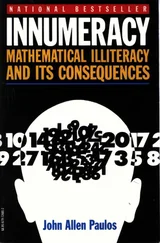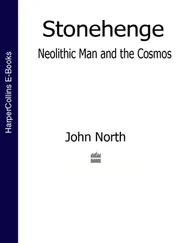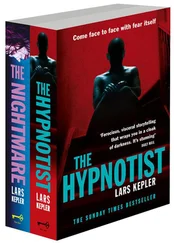1 ...6 7 8 10 11 12 ...29
The Collapse of Communism in Europe
A decisive turn in the historiography resulted from the fall of communism in Eastern Europe and the dissolution of the Soviet Union in 1989-91. The opening of the Polish, Romanian, Slovak, and Soviet archives made available to scholars a vast amount of fresh material to understand the Holocaust in the east of Europe, including the activities of Ukrainian nationalists. 79Moreover, the political restraints on research were removed. Scholars in the postcommunist sphere could now write whatever they wished, free from censorship and communist party control. Polish scholars no longer had to refrain from writing about the fate of Poles in territories that were once in the Soviet Union but now formed parts of independent Lithuania, Belarus, and Ukraine. 80Even Ukrainian nationalists had been worried about writing their own history as long as Ukraine was communist, since revealing too much could lead to reprisals against nationalists and their families still residing in Soviet Ukraine. 81Now those fears were gone. The result of these new sources and new freedoms was the blossoming of a diverse historiography on the question of the Ukrainian nationalists and the Jews during the Holocaust.
The first to professionally mine the new sources were two German scholars, Thomas Sandkühler and Dieter Pohl, who each produced a German-sized monograph on the Holocaust in Galicia, in 1996 and 1997 respectively. Both followed the practice of what was then mainstream Holocaust historiography: they paid relatively little attention to victims and their testimony and relied heavily on documents emanating from German structures. Pohl argued that the attitudes of the autochthonous, non-Jewish population were relatively unimportant in determining the general course and final outcome of the mass murder in Galicia: essentially the German occupation authorities made the decisions and executed them themselves. Whether resisting or aiding the Germans in the murder, the actions of what Pohl called “the Christian population” were of secondary importance in influencing events. 82Pohl characterized the Bandera faction of OUN as antisemitic for much of the war, particularly in the spring and summer of 1941 and again in 1944, as the Soviets closed in, stating also that in 1942-43 OUN distanced itself from the Germans’ murder of the Jews. 83(During the latter period Ukrainian opinion in general had cooled towards the Germans and their “final solution.”) 84Pohl was not able to link OUN directly to any concrete war crimes. His treatment of the Ukrainian Insurgent Army in relation to the Holocaust reached no clear conclusion. 85In my own review of Pohl’s book, I characterized it as follows: “This is an ambitious and pioneering work. It is not a synthesis based on a corpus of pre-existing monographs; instead, it attempts a comprehensive portrayal of the Holocaust in Galicia largely on the basis of primary sources. It opens the field for further, in-depth monographic research of specific problems and incidents.” 86
It was in this period too that Jeffrey Burds began to lecture and write about OUN and UPA in an entirely new vein. Although the texts he published then did not directly concern the Holocaust but rather focused on the immediate postwar period, 87they demonstrated that sources in the newly opened post-Soviet archives could provide a much deeper knowledge of the nationalists’ actions than other historians had ever imagined. Also, his revelations about the ruthlessness of OUN and UPA helped break the spell of the nationalists’ own historiography.
Directly related to wartime OUN’s Jewish politics was a documentary publication by Karel C. Berkhoff and Marco Carynnyk: the full text, or rather texts, of the July 1941 autobiography of nationalist leader Yaroslav Stetsko, mentioned above in connection with Michael Hanusiak and to be discussed in some detail below. 88In their introduction to the autobiography Berkhoff and Carynnyk surveyed some of OUN’s anti-Jewish pronouncements, which they found to be written in “vicious language” and to be encouraging “a deadly antisemitism.” 89
Martin Dean’s Collaboration in the Holocaust investigated the actions of local police in certain regions of Belarus and Ukraine during the Nazi occupation. Although a very valuable study, it exemplified a trend that was still strong in the 1990s: Dean studied the Holocaust in Eastern Europe without knowledge of the relevant East European languages. Dean was trained in history (his first book was on Austrian policy during the late-eighteenth century wars with revolutionary France) and was then employed in the war crimes unit in Scotland Yard. He moved from there to the Center for Advanced Holocaust Studies at the United States Holocaust Memorial Museum (USHMM) in Washington, DC, where he has continued to write and compile impressive works on Holocaust history. Collaboration in the Holocaust was based on archival sources and eyewitness testimonies. It outlined the influence of OUN on the local Ukrainian police in German service and the role of those policemen later in UPA. But his work focused on areas outside the center of OUN and UPA activity, which was Galicia and Volhynia.
With the weakening and then total collapse of the Soviet system, OUN and UPA came under reexamination in Ukraine. After decades of condemnation of the nationalist organizations, calls for rehabilitation emerged in the public discourse, particularly in the Lviv newspaper Za vil’nu Ukrainu . 90Already in March 1990, the foremost proponent of reform in Soviet Ukraine, Rukh ( Narodnyi Rukh Ukrainy —People’s Movement of Ukraine), raised the issue of the nationalists’ political rehabilitation. 91Before long, the government began to turn to Ukraine’s scholarly establishment to advise on the issue. On 12 June 1991 the head of the commission on defense and state security of the Verkhovna Rada of the Ukrainian SSR, Vasyl Durdynets, wrote to the Ukrainian academy of sciences with the request to find someone to prepare a background paper on OUN, UPA, and the Waffen-SS Division Galizien. The task was entrusted to Viktor Koval, a historian in his mid-seventies specializing in the Second World War. Koval had studied in his native Kyiv and worked there in the academy’s Institute of the History of Ukraine. The text he speedily produced, by 1 July, argued that “OUN and UPA conducted a national-liberation struggle for the construction of a sovereign and democratic Ukraine, in which people of all nationalities would enjoy the same political and social rights.” Durdynets, who had long been an official in the Communist Party of Ukraine, repudiated the report and demanded that the academy withdraw it and replace it with another. The academy complied immediately, formally withdrawing Koval’s report on 3 July. 92But the OUN-UPA issue would not go away for the Ukrainian public, government, or academia. In particular, veterans’ groups—Red Army veterans and UPA veterans—were confronting one another, especially on the occasion of the fiftieth anniversary of UPA celebrated in 1992. In 1993 the parliament ( Verkhovna Rada ) again decided that there was a need to investigate the legacy of OUN-UPA, but the efforts of a parliamentary committee proved insufficient to the task. Finally, in 1997 a working group of historians, under the leadership of Stanislav Kulchytsky, was charged with unearthing the true history of OUN-UPA and evaluating its heritage. The task proved more complicated than anyone expected, and the commission made no concrete progress until the early 2000s.
A few studies related to our topic did appear in Ukraine in the 1990s. Yakov Khonigsman’s short book on the Catastrophe of Lviv Jewry, which came out in 1993, built on earlier studies, especially on the works of Philip Friedman and Tatiana Berenstein (the latter unavailable to me), as well as on a modest selection of documentation from Lviv archives. It made little use of memoirs and testimonies. In fact, in the foreword to the book, Bogdan Semenov stated that the volume “is not written from the words of eyewitnesses, where in the main the element of subjectivity or emotionality figures,” but “according to the materials of archival documents.” 93Khonigsman avoided the topic of any OUN involvement in the events he described. Later, in 1998, Khonigsman published a book that looked at the Holocaust across Western Ukraine, encompassing the Ukrainian historical regions of Galicia, Volhynia, Bukovina, and Transcarpathia, but primarily concentrating on Galicia. This book made more use of survivor testimonies and was more deeply researched in archives, principally in the Lviv archives, but also in those of Kyiv and elsewhere. In this book Khonigsman pointed out how antisemitic OUN was. 94Like many other historians before him, he did not differentiate the militia established by OUN from the Ukrainian auxiliary police established later by the Germans; hence he ascribed crimes of the militia to the auxiliary police. 95Khonigsman had nothing to say about UPA and the Jews.
Читать дальше
